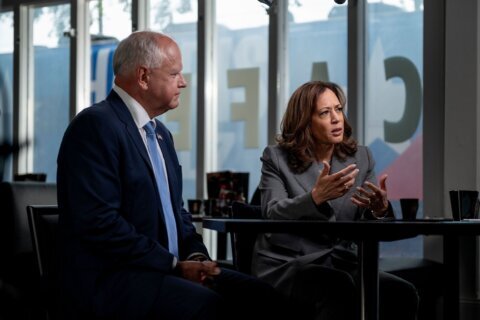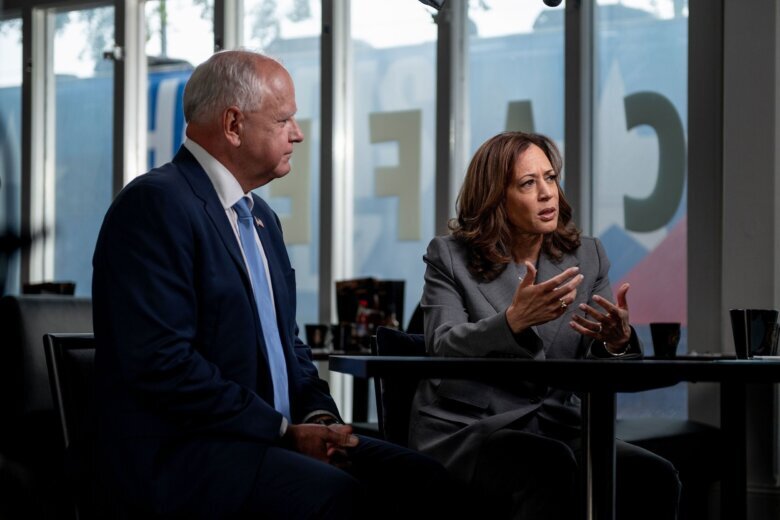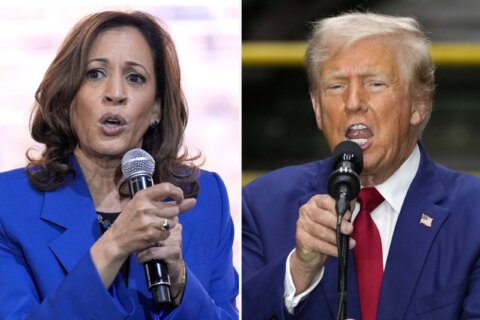
Washington (CNN) — Vice President Kamala Harris is set to propose a handful of new benefits to entrepreneurs and small business owners to spur the creation of millions of new businesses, as part of a second wave of economic proposals set to be unveiled Wednesday.
In an economic speech in New Hampshire on Wednesday, Harris plans to call for expanding a tax deduction for costs associated with starting a business and removing regulatory hurdles – like filing requirements and operational licenses – for businesses of a certain size, according to a Harris campaign official. It’s an attempt by the Harris campaign to appeal to a critical middle-class constituency that could help boost her chances in November.
“This is one of my singular priorities, is to invest and grow our small business,” Harris told a small business owner in Savannah, Georgia, last week, alluding to the forthcoming tax credit she’d propose.
Small businesses are currently granted a $5,000 deduction for expenses related to their first year of operation, according to the Congressional Research Service. Harris will propose raising that to $50,000, the official said, citing the average business’ outlays of $40,000 to get off the ground.
Harris is also aiming to surpass the 19 million new businesses under the Biden administration with a new goal of 25 million.
After releasing a first wave of more populist policies to increase government involvement in retail pricing and the housing market, Harris is crafting a pro-business, low-regulation platform aimed at taking the air out of Republican broadsides.
And, advisers say Harris is expected to borrow another page from a playbook that’s traditionally been used by conservatives: Branding herself as fiscally disciplined.
Harris is expected to argue on the campaign trail that the revenue gained by rolling back certain provisions in the 2017 Tax Cuts and Jobs Act, one of former President Donald Trump’s signature achievements in his first term, should be used to fund community-level investments and other programs that affect Americans in a more targeted way. One close adviser told CNN that Harris believes the federal government should “use those expiring tax cuts to get at issues that affect the bottom line for the average American.”
Small business growth is at the top of a list that, as CNN has previously reported, also includes investing in underserved communities and assisting working families.
Community-based lending
Harris also plans to propose a new fund of undisclosed size to allow the country’s smallest banks to cover interest costs on loans to new business. As a senator and as vice president, Harris has worked to provide funding to these banks to invest in startups outside major cities. In particular, Harris promoted legislation that provided capital to Community Development Financial Institutions (CDFIs), which are dedicated to serving low-income people and communities that are missed by traditional lenders. While many small businesses struggled during the Covid-19 pandemic, those owned by people of color were hit hardest.
On Wednesday, Harris will call for more funding for those banks.
Deputy Treasury Secretary Wally Adeyemo, who has worked with Harris to increase access to this capital across the country, said CDFIs are critical because they have been able to step in to lend to new businesses with no financial history.
“Some new businesses go to seven different banks to try to get a loan, but they can’t get one because they don’t have a three-year track record,” Adeyemo told CNN in an interview.
Interest rates – which have risen for all businesses in recent years – are far higher for smaller companies, too, often making it cost-prohibitive for them to borrow even if they can get a loan.
“Ultimately the cost of capital is going to be something that matters a lot,” Adeyemo said.
Harris’ prior economic proposals
The small business measures come three weeks after Harris released a four-part package aimed at making housing, groceries, child rearing and health care more affordable. Many of the proposals build upon efforts the Biden administration has already unveiled.
To make purchasing a home more affordable, Harris would provide up to $25,000 in down-payment support and a $10,000 tax credit for first-time homebuyers. She also wants to create a tax incentive for builders who build starter homes sold to first-time buyers and to expand an existing tax incentive for building affordable rental housing. Plus, she would ban algorithm-driven price-setting tools for landlords to set rents.
Harris is also proposing a federal ban on price gouging in an effort to lower grocery prices, though her campaign has released few details about the measure.
In addition, Harris wants to restore the American Rescue Plan’s popular expansion of the child tax credit to as much as $3,600, up from $2,000, and is calling for it to be made permanent. The enhancement was only in effect in 2021. Harris would also add a new child tax credit of up to $6,000 for middle-class and lower-income families with children in their first year of life.
The vice president also wants to expand the current $35 monthly cap on out-of-pocket costs for insulin and the upcoming $2,000 annual limit on out-of-pocket costs for prescription drugs generally to all Americans, not just Medicare enrollees. Plus, she would extend the more generous Affordable Care Act premium subsidies that are set to expire at the end of 2025 and accelerate the speed of Medicare’s drug price negotiations.
The-CNN-Wire
™ & © 2024 Cable News Network, Inc., a Warner Bros. Discovery Company. All rights reserved.






